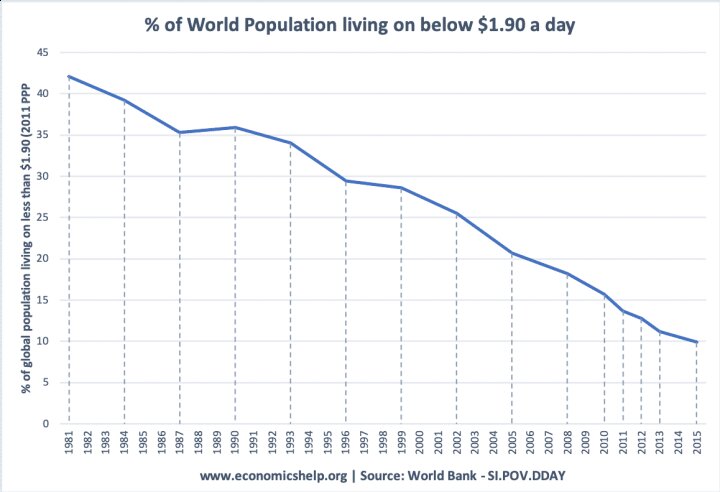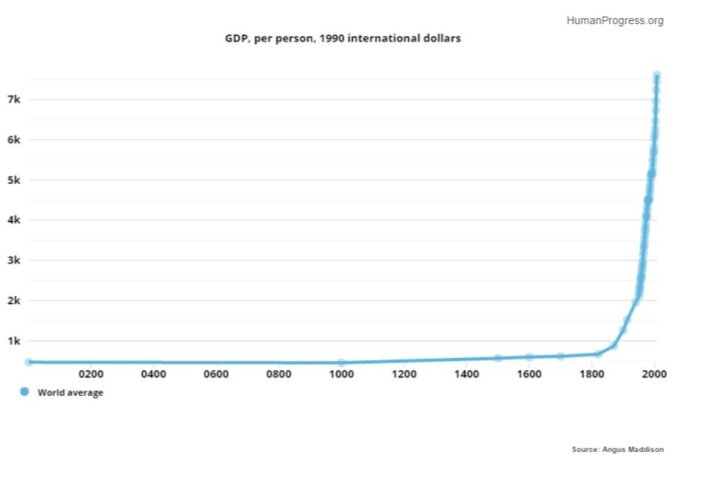Conservatives don't understand Marx
Conservatives and Neo - liberals are more likely to caricature and make fun of Karl Marx’s writings and beliefs than offer serious rebuttals to his many ideas. Why? Because Marx’s insights expose deep inconsistencies in cherished right-wing doctrines.
If you want to anger a conservative, just try arguing that Karl Marx might have something worth saying. Or worse, suggest that a man who wrote numerous volumes on everything from German philosophy to the standard assumptions of classical political economy might have a more nuanced theory than “rich people bad, poor people good.”
Yet several decades after the Cold War, plenty of right-wing pundits still can’t be bothered to offer rebuttals to Marx that go beyond glib denunciations. Jordan Peterson has described Marxism as an evil theory and made his name bashing “postmodern neo-Marxism,” despite admitting during one debate that he hasn’t read much more than the Communist Manifesto in the past few decades.
In his book "Don’t Burn This Book" Dave Rubin lumps in socialism with Nazism and fascism by claiming Benito Mussolini was “raised on Karl Marx’s Das Kapital” — ignoring Il Duce’s later efforts to imprison and silence Marxists and other “enemies of the nation.” And most recently, Ben Shapiro’s "How To Destroy America in Three Easy Steps" recycles old tropes about the “nonsense” of Marx’s labor theory of value, while ignoring the irony of praising John Locke for “correctly pointing out that ownership of property is merely an extension of the idea of ownership of your labor; when we remove something from the state of nature and mix our labor with it and join something of our own to it, we thereby make that property our own.”
This tendency to criticize Marx without actually engaging his ideas is especially rich considering Peterson, Rubin, and Shapiro endlessly parrot clichés about the importance of hard work and spirited debate. An easy way to dismiss them would be to just insist they live up to those lofty standards in between appearances on PragerU.
I suggest that conservatives avoid seriously dealing with Marx’s work not just because he was critical of capitalism, wrote some polemical things about religion, or was suspicious of class hierarchy. It is because Marx’s writings reveal deep inconsistences in cherished conservative doctrines.
A go-to argument of conservatives is to dismiss Marx’s “theory of human nature”: either Marx was dangerously naive about the human capacity for evil and selfishness — which shows why his ideal classless society turned out to be such a bust in practice — or he believed that there was no human nature, that we are infinitely plastic beings that could be made and remade by a sufficiently rational and powerful state committed to utopian planning.
Both of these claims are nonsensical. From his early ruminations about our “species being” determined by nature, to his later psychological ruminations about how our desire for recognition and status spurs “commodity fetishism,” Marx was neither utopian nor naive about our potential for hypocrisy, cruelty, and hedonism. Where Marx was innovative was in showing how the historical and economic conditions around us play a major role in shaping our sense of self and behavior.
This doesn’t mean we are purely determined by historical context. But Marx argued that the historical and economic conditions we’re born into provide the starting point we all must navigate. As he put it in The Eighteenth Brumaire of Louis Napoleon, “men make their own history, but they do not make it as they please; they do not make it under self-selected circumstances, but under circumstances existing already, given and transmitted from the past.”
Parts of this argument should actually appeal to many conservatives. From Edmund Burke to Roger Scruton, a common right-wing complaint has been that radicals portray humans as ahistorical beings that can be understood purely as atomized individuals. Instead, they stressed, every human is embedded in layers of community, with hallowed traditions and morals shaped through history and institutions, including churches and temples, nations, and even “Western civilization.” These “little brigades” affect how we think of ourselves and what we believe.
Conservatives often insisted that ignoring the importance of these historical communities could only lead to disaster. Marx would certainly agree. But he would add that we are also embedded in a historically distinct economic system that profoundly shapes who we are and what we believe.
It’s on this point that many of the same conservative commentators that insist on applying a historical and institutional lens to understand human behavior and communities become ahistoricists. They insist that capitalism simply flows from human nature, that it has always been around and therefore always must be, and that any effort to change it can only yield disaster, as surely as demanding fish ride bicycles
If you want to anger a conservative, just try arguing that Karl Marx might have something worth saying. Or worse, suggest that a man who wrote numerous volumes on everything from German philosophy to the standard assumptions of classical political economy might have a more nuanced theory than “rich people bad, poor people good.”
Yet several decades after the Cold War, plenty of right-wing pundits still can’t be bothered to offer rebuttals to Marx that go beyond glib denunciations. Jordan Peterson has described Marxism as an evil theory and made his name bashing “postmodern neo-Marxism,” despite admitting during one debate that he hasn’t read much more than the Communist Manifesto in the past few decades.
In his book "Don’t Burn This Book" Dave Rubin lumps in socialism with Nazism and fascism by claiming Benito Mussolini was “raised on Karl Marx’s Das Kapital” — ignoring Il Duce’s later efforts to imprison and silence Marxists and other “enemies of the nation.” And most recently, Ben Shapiro’s "How To Destroy America in Three Easy Steps" recycles old tropes about the “nonsense” of Marx’s labor theory of value, while ignoring the irony of praising John Locke for “correctly pointing out that ownership of property is merely an extension of the idea of ownership of your labor; when we remove something from the state of nature and mix our labor with it and join something of our own to it, we thereby make that property our own.”
This tendency to criticize Marx without actually engaging his ideas is especially rich considering Peterson, Rubin, and Shapiro endlessly parrot clichés about the importance of hard work and spirited debate. An easy way to dismiss them would be to just insist they live up to those lofty standards in between appearances on PragerU.
I suggest that conservatives avoid seriously dealing with Marx’s work not just because he was critical of capitalism, wrote some polemical things about religion, or was suspicious of class hierarchy. It is because Marx’s writings reveal deep inconsistences in cherished conservative doctrines.
A go-to argument of conservatives is to dismiss Marx’s “theory of human nature”: either Marx was dangerously naive about the human capacity for evil and selfishness — which shows why his ideal classless society turned out to be such a bust in practice — or he believed that there was no human nature, that we are infinitely plastic beings that could be made and remade by a sufficiently rational and powerful state committed to utopian planning.
Both of these claims are nonsensical. From his early ruminations about our “species being” determined by nature, to his later psychological ruminations about how our desire for recognition and status spurs “commodity fetishism,” Marx was neither utopian nor naive about our potential for hypocrisy, cruelty, and hedonism. Where Marx was innovative was in showing how the historical and economic conditions around us play a major role in shaping our sense of self and behavior.
This doesn’t mean we are purely determined by historical context. But Marx argued that the historical and economic conditions we’re born into provide the starting point we all must navigate. As he put it in The Eighteenth Brumaire of Louis Napoleon, “men make their own history, but they do not make it as they please; they do not make it under self-selected circumstances, but under circumstances existing already, given and transmitted from the past.”
Parts of this argument should actually appeal to many conservatives. From Edmund Burke to Roger Scruton, a common right-wing complaint has been that radicals portray humans as ahistorical beings that can be understood purely as atomized individuals. Instead, they stressed, every human is embedded in layers of community, with hallowed traditions and morals shaped through history and institutions, including churches and temples, nations, and even “Western civilization.” These “little brigades” affect how we think of ourselves and what we believe.
Conservatives often insisted that ignoring the importance of these historical communities could only lead to disaster. Marx would certainly agree. But he would add that we are also embedded in a historically distinct economic system that profoundly shapes who we are and what we believe.
It’s on this point that many of the same conservative commentators that insist on applying a historical and institutional lens to understand human behavior and communities become ahistoricists. They insist that capitalism simply flows from human nature, that it has always been around and therefore always must be, and that any effort to change it can only yield disaster, as surely as demanding fish ride bicycles











